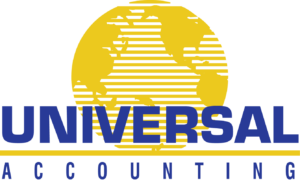Learn Practical Accounting Basics
Sessions 1-3 — Develop First-Rate Accounting Skills
The first sessions of Module 1 of the Professional Bookkeeper™ (PB) course teach you the fundamental building blocks of the accounting process. You will have a firm understanding of debits and credits. Though they make up one of the simplest concepts of Accounting, they are among the least understood. You will learn how a T-account works and how to balance double-entry Accounting forms. You will learn the best indicators of a company’s financial strength. Since you are a company’s first line of defense in knowing their financial health, knowing how to interpret Accounting data is of critical importance to your success and the profitability of your clients. Modern accounting has not fundamentally changed in 300 years. However, there are many ways to record Accounting tasks. You will learn a tried and proven accounting system that ensures efficiency, accuracy, and integrity. There are also Accounting tasks that must be performed in very specific ways and one accounting rule you should never break, which Module 1 will detail.
Sessions 4-6 — Consult on Key Business Issues
Your clients will rely heavily upon you to not only record Accounting entries but to help them to interpret them. Because you know more about a client’s financial health, clients will come to you and value your opinion. Without you, they don’t even know if they are profitable or not. You will learn the must-know principles of marking down assets and the what’s, when’s, where’s, and how’s of depreciation. Further, Module 1 teaches you three methods of depreciating fixed assets — when and why to use them and two methods of calculating the allowance for bad debts. You will be able to present the business legal structures with confidence and give some advice regarding which are best for businesses of various types. Practice Exercise: Practice categorizing over 90 accounts into their appropriate general ledger section.
Session 7 — Assemble the Financial Puzzle
You will master the technique that will enable you to navigate the debit/credit maze and learn to use the accountants’ troubleshooting tool. Now that you will have some experience in basic accounting, you will be introduced to preparing financial statements that your clients will use to analyze the financial “big picture” of their company’s health. Practice Exercise: Drill . . . drill . . . drill — Enter over 100 different transactions into 12 different companies.
Session 8 — The Earnings Account Explosion
You will be introduced to Gross Profit, what it is, and what it means about the financial condition of a company. How the income accounts connect into the balance sheet will also be taught.
Summary
When you have mastered the concepts introduced in Module 1, you will have a core understanding of the Accounting process and how to perform Bookkeeping tasks and basic reports. This knowledge will give you the ability to determine the profitability of a company and to be able to advise in key areas of incoming revenue and outgoing bills. You will now be able to go on to Module 2, Practical Small Business Applications, where you will learn to succeed in business by using professionally designed accounting systems for a variety of industries.
Get Started Today, call us at +1 (801) 855 6550 or GO HERE to schedule a time when it is convenient for you.
Save

